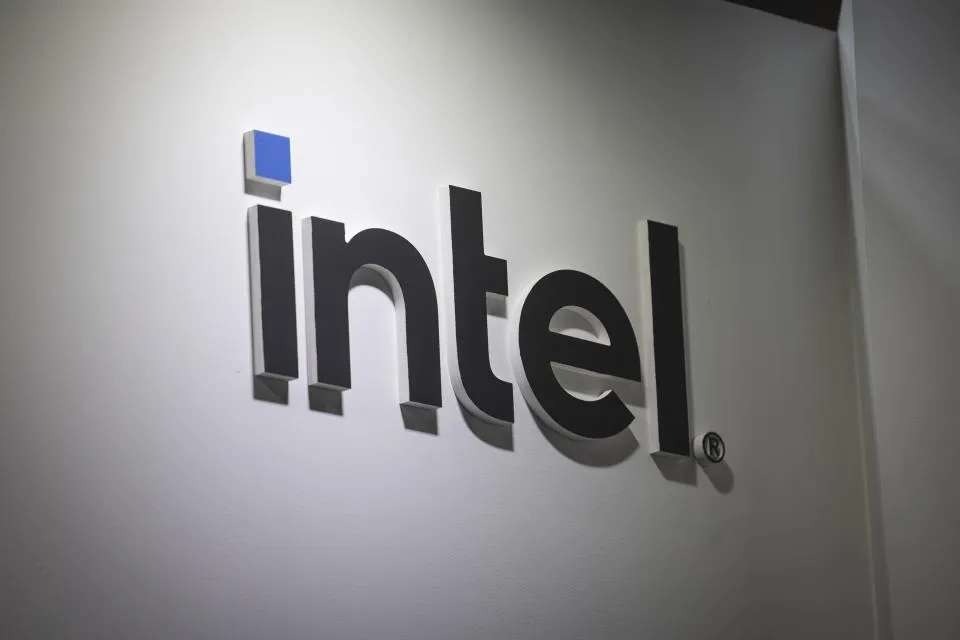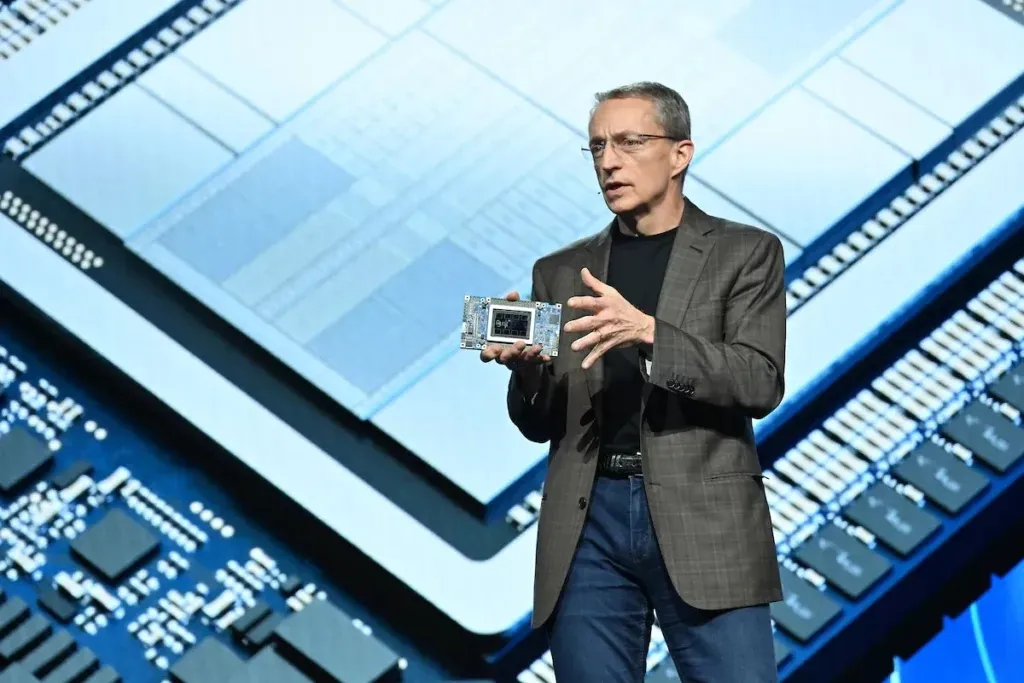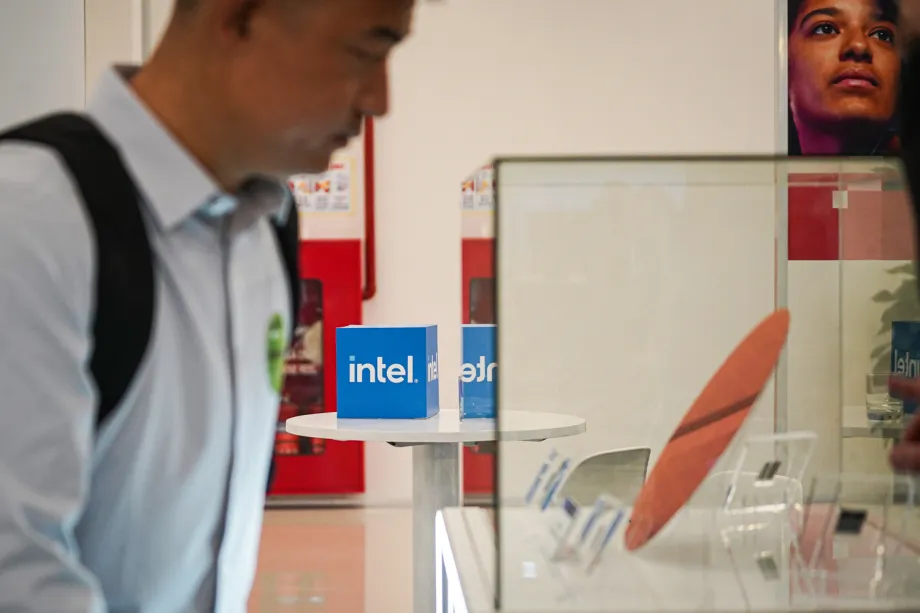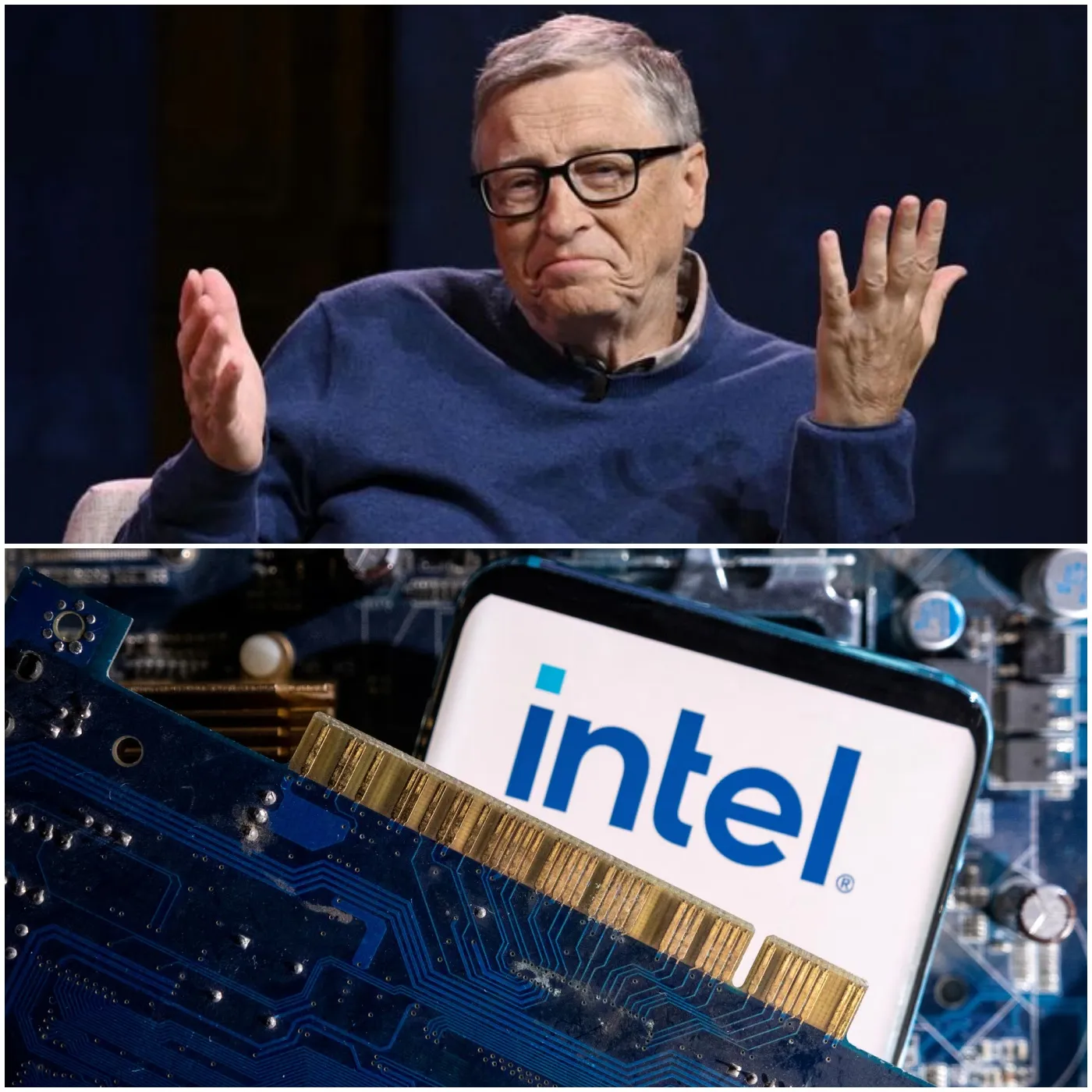Bill Gates Sounds the Alarm: Is Intel Losing Its Edge in the AI Chip Race?
Microsoft co-founder Bill Gates has recently voiced his growing concern over Intel’s declining influence in the competitive semiconductor industry, particularly in the booming artificial intelligence (AI) chip market. Once a trailblazer in chip design and manufacturing, Intel is now struggling to keep pace with tech giants like Nvidia and Qualcomm, which have surged ahead with innovative and powerful AI-focused hardware.
In a candid interview, Gates reflected on the rapid evolution of the chip industry and expressed disappointment that Intel, a longtime leader in the sector, is now losing ground in critical technological advancements. “Intel was once synonymous with cutting-edge technology,” Gates remarked. “But the AI revolution is happening fast, and it’s clear that competitors are outpacing them.”
Intel’s struggle is particularly evident in the AI market, where Nvidia has established dominance with its graphics processing units (GPUs) that are widely used in machine learning and data processing. Qualcomm, too, has made significant strides with its AI-focused processors, leveraging its expertise in mobile technology to tap into emerging markets like autonomous vehicles and smart devices.
For Gates, the issue is not just about competition but also about the broader implications for the tech industry. He emphasized the importance of maintaining a diverse and dynamic market where multiple companies contribute to innovation. “When one company falls behind, it can slow down the entire ecosystem,” he explained.
Industry experts agree with Gates’ assessment. Intel’s delayed response to the AI boom, coupled with manufacturing challenges and leadership changes, has hindered its ability to compete effectively. The company’s recent focus on revamping its manufacturing strategy and developing new AI chips could help regain some market share, but many believe the road to recovery will be long and challenging.
Bill Gates’ Concerns: Intel’s Decline
In a conversation with AP on February 8, during the release of his memoir “Source Code: My Beginnings”, Gates didn’t hold back his disappointment with Intel.
“I’m stunned that Intel has basically lost its way,” Gates remarked. Despite having admiration for the chip giant, he believes the company has strayed from its core strengths, leading to significant leadership changes and a diminished market position.
A Leadership Void
Intel saw the departure of CEO Pat Gelsinger late last year. Gates commended Gelsinger’s bravery in taking the reins in 2021, attempting to reform Intel’s chip design and manufacturing capabilities.
However, Gates admitted: “I hope Intel recovers, but it seems to be quite difficult for them at this stage.”

Falling Behind in the AI Revolution
Intel, which once led the semiconductor industry, now finds itself struggling to keep up with the AI chip revolution.
What Went Wrong?
– Missed Opportunities: Gates emphasized that Intel failed to capitalize on AI chip advancements, missing critical opportunities in a booming market.
– Manufacturing Limitations: Despite having advanced manufacturing facilities, Intel is not meeting the industry standards set by rivals like Nvidia and Qualcomm.
– Strategic Missteps: The company’s inability to innovate quickly and adapt to industry trends has left it vulnerable.
“They missed the AI chip revolution. With their manufacturing capabilities, they don’t even use the standards that companies like Nvidia and Qualcomm find easy,” Gates said.

A Look Back: Intel and Microsoft’s Shared Legacy
Bill Gates’ sentiment is not just a business observation but also a personal one. Microsoft and Intel share a rich history, having collaborated to drive the personal computer (PC) revolution.
The Early Days
In the early 1970s, Intel’s innovative chip designs enabled the creation of personal computers, transforming the tech landscape.
– The breakthrough of small, powerful chips paved the way for software innovations.
– This progress directly influenced Gates and Paul Allen to establish Microsoft, combining microprocessor and software to revolutionize computing.
“If Intel hadn’t made a technological breakthrough by creating a small chip that could power personal computers, I might have pursued a different career path,” Gates reflected.
A Shared Setback
In the mid-2000s, both Intel and Microsoft missed the smartphone revolution, allowing competitors like Apple and Qualcomm to dominate.
– Microsoft adapted by shifting to cloud computing and AI services, regaining momentum.
– Intel, however, struggled to find its footing, resulting in leadership instability and speculations of a potential takeover.

Intel’s Current Position: Is There Hope?
Despite setbacks, Intel is not completely out of the race.
Promising Developments
– AI-Focused Innovations: The company is developing new chip lines tailored for AI applications.
– Panther Lake Chip Line: Scheduled for release later this year, the 18A-process Panther Lake chip line is designed to meet the growing demands of AI and high-performance computing.
These initiatives show that Intel is still investing in R&D, aiming to reclaim its industry leadership.
Market Sentiment
While PCGamer acknowledged Gates’ critique, the outlet described it more as a “sad lament” than a harsh criticism. Gates’ tone suggests a genuine hope for Intel’s recovery, not just for business reasons but also for the national interest and the legacy of innovation.

What Intel Needs to Do to Bounce Back
To regain its status as a tech leader, Intel must focus on several key strategies:
1. Revitalize Leadership
– Stability at the Top: Appointing a permanent CEO who can lead with a clear vision and strategic focus.
– Embrace Innovation: Encouraging a culture of agility and forward-thinking, similar to what Nvidia and Qualcomm have demonstrated.
2. Strengthen AI Capabilities
– Develop Competitive AI Chips: Speed up the research and development of AI-specific processors.
– Collaborate with Industry Leaders: Form partnerships with AI companies to integrate Intel chips into cutting-edge technologies.
3. Improve Manufacturing Standards
– Upgrade Facilities: Adopt industry-standard practices to enhance production efficiency.
– Optimize Processes: Implement lean manufacturing techniques to reduce costs and increase output quality.
4. Expand Beyond Traditional Markets
– Explore Emerging Technologies: Intel should diversify into areas like autonomous vehicles, IoT, and 5G infrastructure.
– Focus on Software Integration: By combining hardware expertise with software solutions, Intel can create holistic technology offerings.

Can Intel Regain Its Crown?
While Bill Gates’ observations may seem critical, they also highlight the enormous potential for Intel’s comeback. The company has a rich history, strong assets, and talented teams—all the ingredients needed for renewed success.
However, Intel’s future will depend on its ability to adapt, innovate, and execute strategic changes swiftly. As AI technology continues to shape the future of computing, Intel must embrace this opportunity to transform itself into a key player in the AI chip market.
If Intel can overcome its challenges, it might not only reclaim its status but also forge a new path in the next wave of technological innovation—one that aligns with the visionaries like Bill Gates who helped shape the modern tech industry.




Post Comment